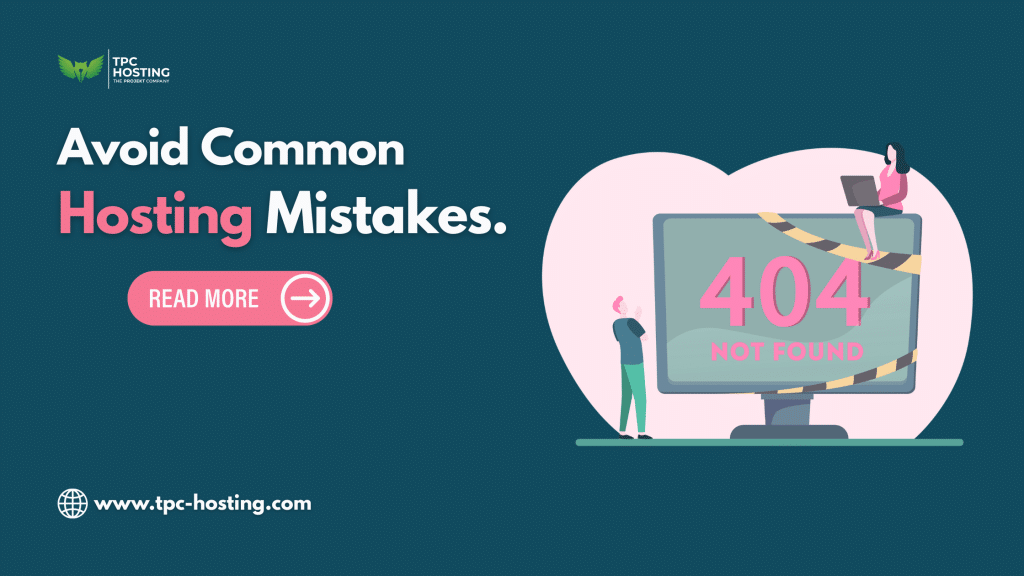
Choosing the Wrong Web Hosting Plan
Selecting the appropriate hosting plan is a pivotal decision for any website owner. Different websites have different needs, and those differences dictate which hosting plan is the best fit. A plan that caters well to a personal blog might not suit a bustling e-commerce platform. This makes it essential to evaluate your website’s requirements, such as the expected traffic, storage needs, and specific functionalities.
Opting for a plan that’s too small can lead to numerous issues. Your website might face slow load times, limited storage, or even frequent crashes. These problems can frustrate users and drive them away, affecting your site’s reputation and success. On the other hand, choosing a plan that’s too large means you’re paying for resources you won’t use. This can strain the budget, especially for small businesses or startups.
There are different types of hosting plans available:
- Shared Hosting: Good for small websites with modest traffic.
- VPS Hosting: Suitable for medium-sized sites needing more control and resources.
- Dedicated Hosting: Ideal for large businesses with high traffic demands.
Consider these options carefully and ensure you pick the one that matches your site’s current and future needs.
Ignoring Security Measures
Security is a cornerstone of successful web hosting, yet it’s often overlooked. Many assume their website is not a target, but cyber threats can hit any site, large or small. Ignoring security measures can have severe consequences, including data breaches, loss of customer trust, and significant costs involved in recovering a compromised site.
Common security oversights include failing to update software regularly and neglecting to use secure passwords. Such lapses can provide easy access for attackers. Websites also often ignore the importance of backing up data, leaving them vulnerable to data loss.
To protect your website, consider implementing the following security features:
- SSL Certificates: Encrypt data transferred between your site and its users.
- Firewalls: Keep out unwanted traffic and potential threats.
- Regular Backups: Ensure you have the most recent data saved in case of emergencies.
- Access Controls: Limit who can change what on your site and keep track of changes.
Use these essential practices to safeguard your website. Taking proactive steps in security not only protects your data but also assures users that your site is a safe place to visit.
Overlooking Scalability Options
Scalability is a crucial factor often neglected by website owners. Websites can experience fluctuations in traffic, especially during promotions or viral events. Without appropriate hosting plans, a site might struggle to handle increased visitors, causing slow load times or crashes. Such issues can lead to frustrated users and lost opportunities.
A flexible shared hosting plan allows your resources to be adjusted as your site grows. While shared hosting has traditionally been viewed as suitable mainly for smaller websites, modern shared hosting packages provide sufficient scalability by offering flexible bandwidth and storage options. It’s important to choose a hosting provider that supports easy upgrades to higher resource plans when your needs change.
With scalable shared hosting solutions, businesses can avoid downtime and poor performance during traffic spikes. A responsive website contributes to a positive user experience, boosting loyalty and conversions. Furthermore, being prepared for growth makes future expansions manageable, reducing the need for sudden or expensive migrations.
TPC Hosting provides shared hosting plans designed with scalability in mind, perfect for startups and growing enterprises. By considering scalability from the start, website owners ensure readiness for future growth. Proper planning saves time and resources, maintaining your website’s reputation and efficiency.
Failing to Monitor Website Performance
Regularly monitoring website performance is vital to ensure smooth operation. Monitoring helps identify issues before they affect users, such as slow page loads or server errors. Without effective monitoring, minor problems can escalate into major disruptions, potentially driving visitors away.
Utilizing monitoring tools integrated within shared hosting plans can keep you informed about your website’s health. These tools track key metrics like uptime, response time, and overall performance. Understanding your site’s performance enables informed decisions regarding necessary improvements or adjustments.
Implement scheduled checks and automated alerts to stay ahead of potential issues. This proactive approach ensures quick reactions, keeping your site functioning optimally. Regular updates and maintenance based on monitoring insights ensure your website remains competitive and user-friendly.
TPC Hosting offers comprehensive performance monitoring tools within its shared hosting plans. Leveraging these tools allows website owners to maintain excellent performance effortlessly. Effective monitoring helps prevent minor issues from becoming major problems, ensuring smooth website operations.
Conclusion
Choosing the right hosting solutions involves more than simply selecting any plan. It’s about addressing critical factors such as scalability, security, and performance monitoring. These elements ensure your website stays online and performs efficiently, providing users with a positive experience.
Let TPC Hosting guide you in securing the ideal shared hosting for your needs. Our shared hosting packages offer outstanding scalability, robust security, and effective performance monitoring tools to maintain peak performance. Take the first step towards reliable and flexible web hosting by reaching out to us today. Let us help you build a secure, scalable, and smooth-running online presence!









